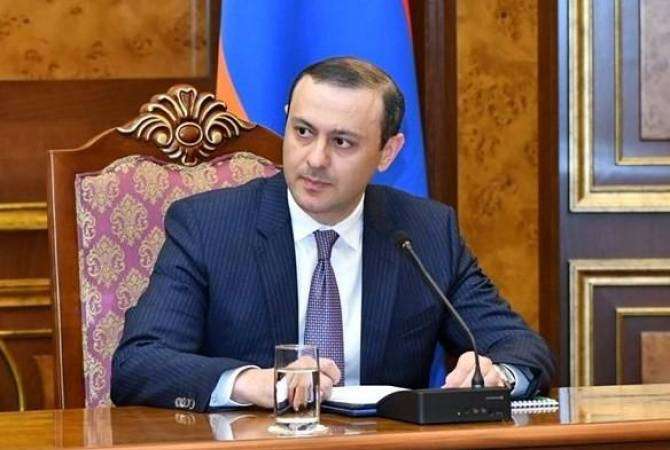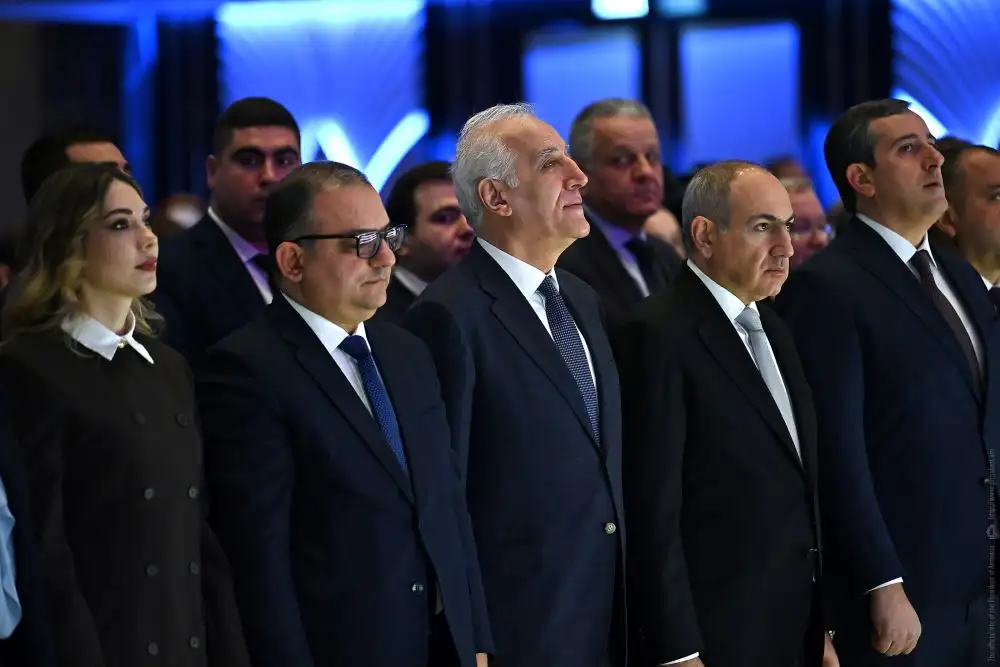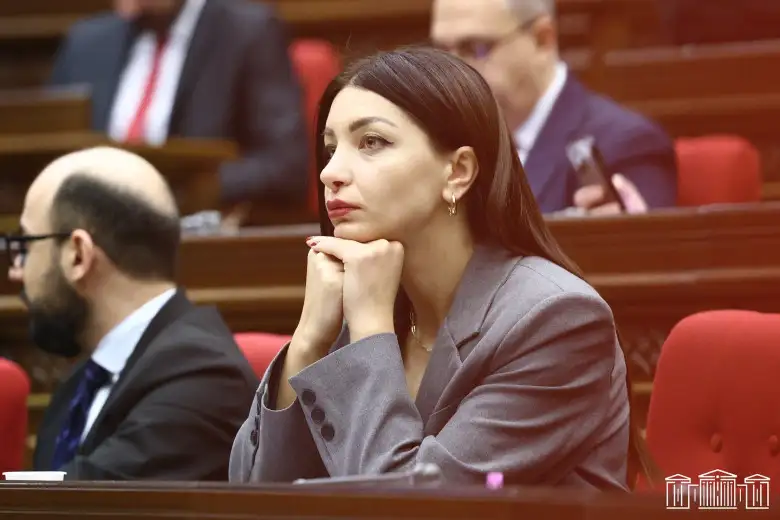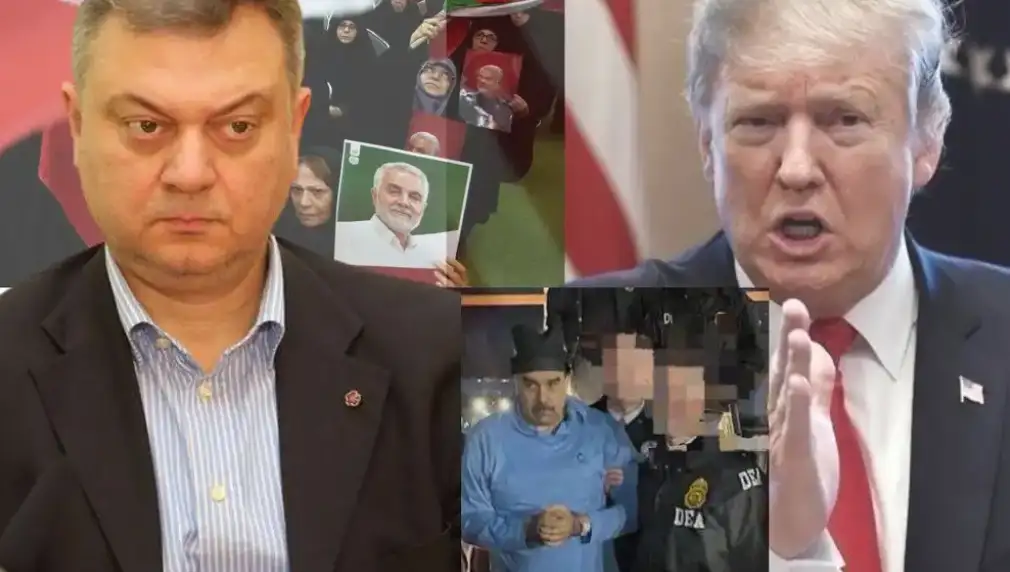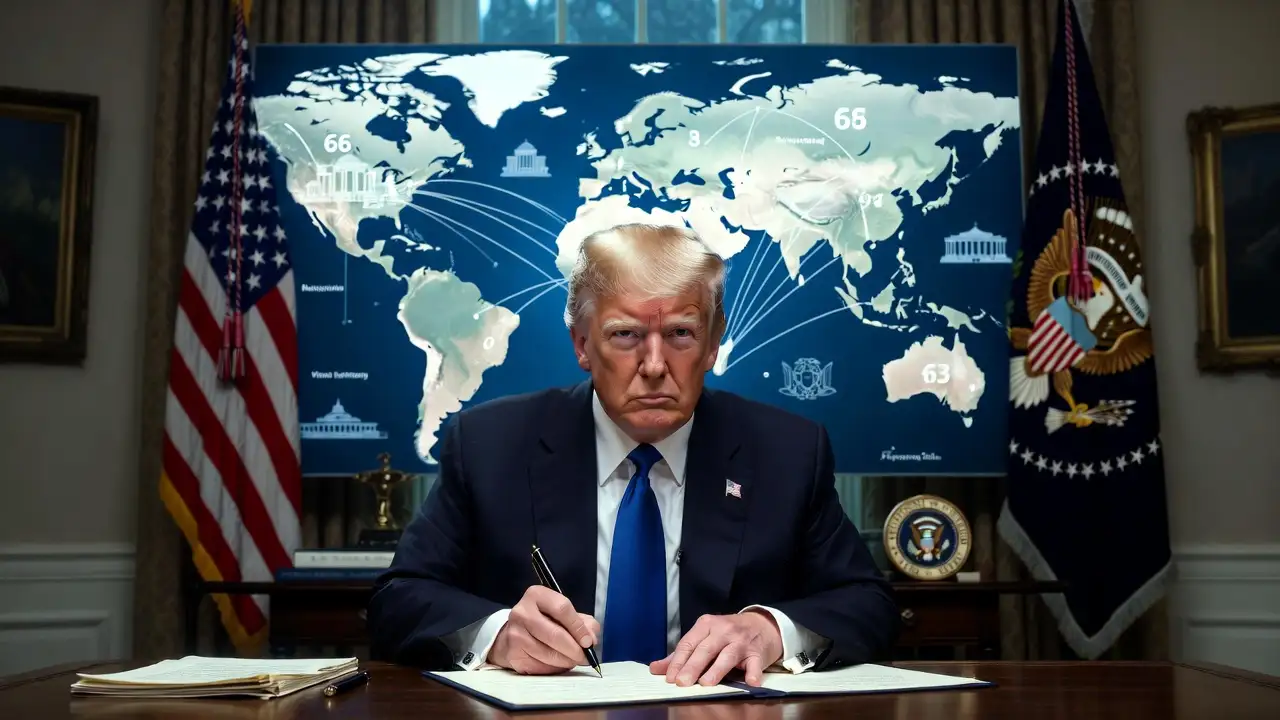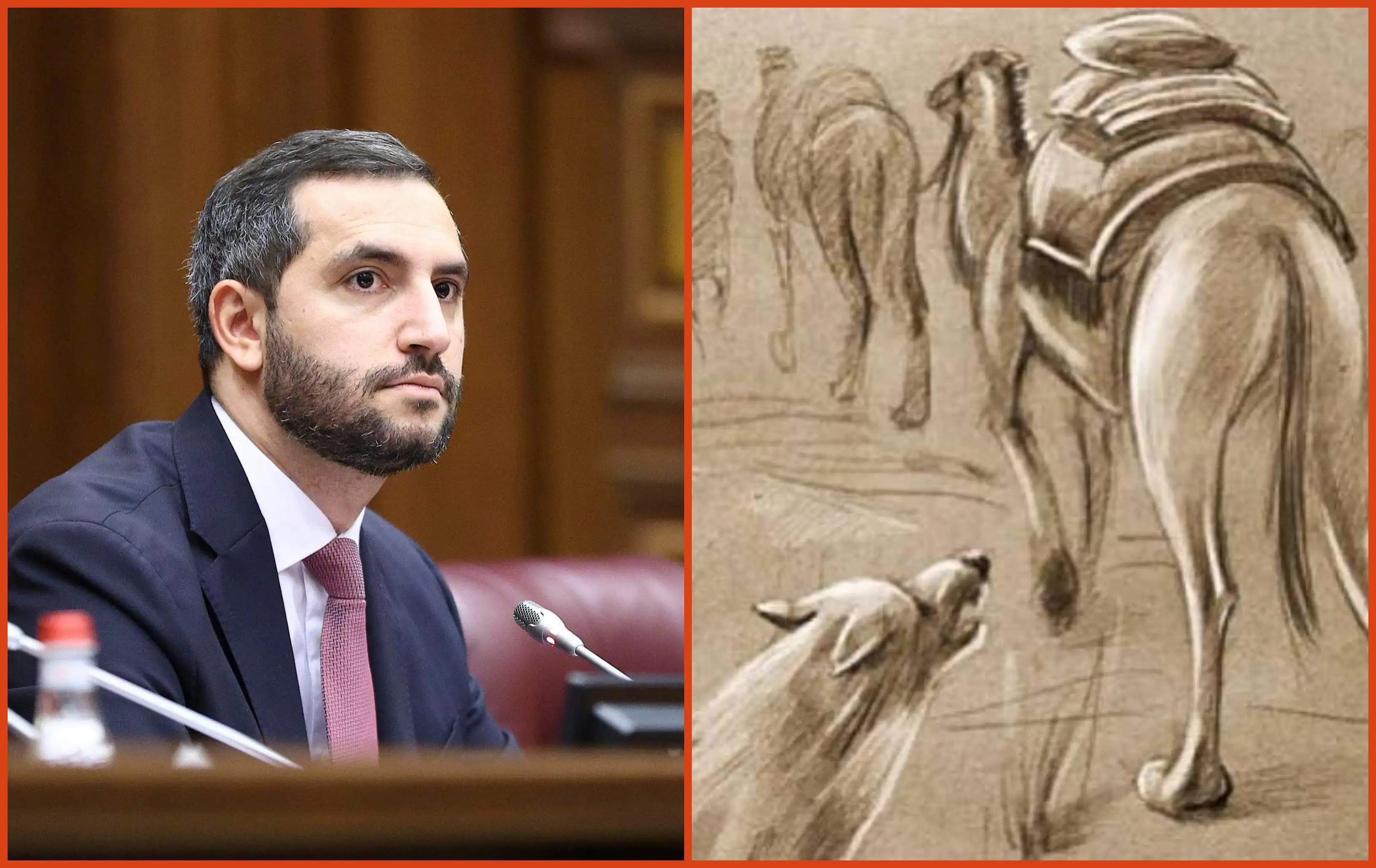On its website, the Novaya Gazeta Europe periodical published an interview with Armen Grigoryan, Secretary of the Security Council of Armenia.
- For almost a year, the Armenian government has been dancing strange dances between the East and the West. Meeting in Washington, meeting in Moscow. Criticism of the CSTO, kind words to the CSTO. Bold recognition of the decisions of the International Criminal Court regarding Putin, and a few weeks later, many reservations that everything is not so clear-cut. And finally, Pashinyan's arrival at the May 9 parade. Step forward, step back. What does it have to do with it?
- There is nothing strange here. In recent years, the security architecture in the world, particularly in our region, has radically changed. Before that, everything was clear and understandable. Conventionally speaking, we thought that it would be possible to call and say. "I have a problem." In response, they will say: "Okay, dear, we will help." We tried, and we see that this mechanism does not work. Contractual obligations still need to be met. Our whole security concept was built on it, and the new one still needs to be there.
The mechanisms that ensure Armenia's security have collapsed, and new ones have yet to be created.
That is the crisis.
- And what to do?
- To look for new mechanisms and arms supplies because, objectively, we are not getting what we ordered and paid Russia for.
- As far as I understand, we are talking about a contract of hundreds of millions of dollars for 2021, which has yet to be fulfilled.
- About several such contracts, it is not the only one. Also, we expected CSTO to work during Azerbaijan's direct aggression on Armenian territory in September of last year. It didn't work, and so on.
- Has there been talk of leaving the CSTO?
- To be honest, yes, there were such discussions; it is a natural reaction.
- Russia reacts very harshly to any contact of Armenia with the West. Every negotiation with the participation of Western partners ends with shootings and provocations at the border. You are being punished for dealing with someone other than the Russian Federation.
- Somewhere you are right, somewhere not. Shelling and provocations happen not only when we negotiate with the West. In 2018, when a revolution took place in Armenia, we said that it was an internal democratic process it would not affect foreign policy. And we continued to work with Russia, but that did not guarantee security. We got the 2020 war—another example. In 2013, President Serzh Sargsyan decided to join the Customs Union, later called the EAEU. They clarified that if he did not do this, Nagorno-Karabakh would have problems. For Sargsyan, the main argument for joining the Union was the security of Karabakh. After that, we got two wars. April 2016 and September 2020.
- The pressure is not only on the line of Karabakh. The situation of Armenian citizens in Russia has recently become complicated; they have started to be deprived of temporary registration. Moreover, there is a risk of being in the army and going to Ukraine to die. There is a video where the Russian military commissar tries to draft an Armenian citizen and send him to the front.
- Everyone sees what is happening; there is nothing to comment on here. I will say something else. During the mass migration to Armenia last year, there were many Armenians. Both those born in Russia and those who once left to work there; were leaving a country in a worse economic situation than it is now. Even now, everything is not in order, but there are facts. Last year the GDP grew by 12.6%, which is an excellent result. Intensive construction is happening, and jobs have appeared for builders and people of many other professions who left due to the impossibility of earning.
- In other words, you cannot protect Armenians in Russia but are ready to accept them in your homeland.
- I say directly: we are waiting for them. Now the population of Armenia is about three million; we would like it to be more. But I wouldn't panic, and I wouldn't exaggerate. The problems related to temporary registration have not appeared now; they have always existed. They are just such conditions of life.
- There are other problems. Recently, "Rospotrebnadzor" limited the sale of Armenian products in Russia. Armenian trucks with food are parked in Upper Lars; they are not allowed to enter the Russian Federation. They used to treat Georgia like that. First, they banned Georgian products and then started deporting Georgians with cargo planes. And you are much more vulnerable. There are many Russian products in Armenia. Railways belong to SCR. The main gas supplies are Russian. All this is easy to close, and collapse will happen.
- Yes, there is such a danger. There are many more vulnerabilities than you listed. We need to diversify the economy, but we must do it in more than one day.
For now, there is only one way to preserve sovereignty and prevent interference in Armenia's internal affairs. They are the democratic institutions we managed to build.
- You constantly utter the word "sovereignty." But we know that the border guard service of Zvartnots airport has a joint computer base with Russia. Yerevan is full of Russian special services, and no one touches them. How to explain it and what to do about it?
- To stop any intelligence activity, a complete reform of the security structures is necessary. It is required to achieve that our institutions serve only Armenia.
- Sorry, but that's a rather unhelpful answer. It follows that there is nothing you can do about it.
- Right now, we can't, but we can and will in the future. By the way, about Zvartnots, everyone remembers that Russian border guards were sitting there not long ago, and now Armenian border guards are also sitting there. So, nevertheless, there is progress. However, sovereignty is a long way. You can't just wake up one day and become completely independent. You have to take one step first, the second, and the third.
- Will you make it? The country is on the brink, not in the distant future. A disaster can happen every day.
- Everyone understands that. But even if you rush too much, changing the sequence of actions is impossible. Only like this: first one step, then the second, then the third. And see what will happen and how the situation will change. We honestly admit we don't have a solution yet but are looking for it. We have a chance, an opportunity. And there are no guarantees.
- I recently spoke with Stepanakert. They are sure that after establishing an Azerbaijani checkpoint in the Lachin corridor, Azerbaijanis can come to Artsakh every day, like in 1915. If this happens, how will Armenia react?
- Since the beginning of December, Armenia has been discussing on all international platforms whether Azerbaijan has plans for ethnic cleansing in Karabakh. Let's see who has a chance to prevent them—first, the peacekeeping forces of the Russian Federation, located in Nagorno-Karabakh. Moreover, according to the 2020 agreements, they are obliged to do so.
- But they don't do it. They give everything possible.
- Do you understand the tragedy of the situation? Russian peacekeepers are in Karabakh, and people are discussing the threat of ethnic cleansing. They have no hope that they will be saved. The second chance is the international community. Armenia has long been lobbying to send a global observation mission to Karabakh. At least observational.
- There is a subtlety here: Karabakh is an unrecognized republic. And the international community treats unrecognized republics very skeptically. That is why they do not protect Karabakh.
- Unrecognized, but the international community has undertaken an obligation to prevent genocide wherever it occurs.
- You are also from there, from Martuni. Is it true that Karabakh is a pro-Russian region?
- It was until recently. Now the sentiments have changed under the influence of circumstances. This is a fascinating topic. There is such a political discourse. Russia began to treat Armenia worse because a pro-Western team came to power after the revolution. People seriously believe it.
Let's think together. Can a vast country like Russia change its geopolitical plans and restructure its strategy because of changes in the leadership of Armenia?
Instead of one 5-10 people, another 5-10 appeared, and Moscow got angry. This is nonsense.
- But that's what happened with Ukraine. When the Ukrainians did not elect the one Putin wanted, a conflict ensued that ended in war.
- It's not like that. There were also accusations about rapprochement with NATO, nationalism, and anti-Russian sentiments. Russia considered that Ukraine was leaving its sphere of influence. But Armenia has yet to go anywhere. We have stated from the beginning that the revolution will not affect foreign policy. However, attitudes have changed.
- And now, let's talk about Karabakh.
- Come on. There are no pro-Western sentiments in Nagorno-Karabakh. There is no Soros. Instead of NATO, it is the Russian Armed Forces, the Russian peacekeeping force. And yet, anti-Russian sentiments have appeared there. Why do you think? Because of Russia, not because of the West. Russia forms its attitude towards itself.
- What do you think they are pursuing in Karabakh? One of the hypotheses is that they want to help Aliyev to open the Zangezur corridor to the Turkish side. By passing the sanctions, Russian gas will be pushed through that corridor under the name of Azerbaijan.
- But it is already happening; gas is pumped within the existing infrastructure. That's not the point, or not only that. In any case,
Armenia will never agree to an extraterritorial corridor through its territory. It is a red line for us.
- What if there is a war?
- In that case, war. If war, war.
Translation by "Armenpress".




